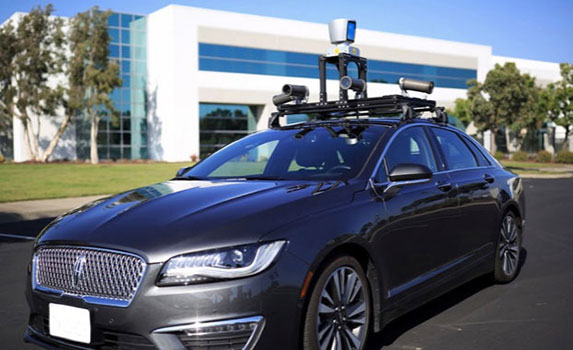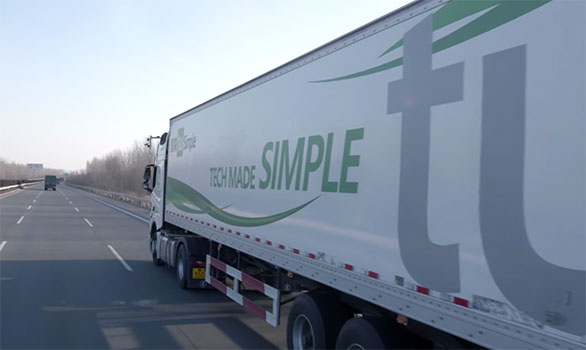With their collective capacity to impact the way we live, the tech and auto industries have long been in a relationship that is greater than the sum of its parts. But those parts have never been more in demand.
The rapid merging of the two worlds has generated a powerful force for change seemingly destined to culminate with the invention of the truly self-drivable car.
And the ripple effect of such an event will likely travel farther still, carrying that change to nearly every aspect of society.
All told, the arrival of autonomous autos is expected to create a new economic sector worth more than $7 trillion. The astronomical number has proved irresistible to a multitude of new companies, all vying for a piece of the pie.
Still, a few of those operations are already in line for a bigger slice.
TechCruch recently ran the numbers to determine the country’s most valuable self-driving start-ups, and the field is already crowded.
Each business listed is working on a suite of self-driving technology (as opposed to focusing on creating a specific sensor or part). They’ve each raised at least $50 million in venture capital funding. None have signed on with a major enterprise—yet—but keen eyes should be on the lookout for their impact on the technology’s ongoing development.
Below are the five biggest “little” companies in the self-driving world, and what they plan to contribute to the cause.
Zoox
Forbes recently described it as “one of the most secretive startups in the world of autonomous cars,” but enough investors have heard about Zoox to make it the most valuable start-up in the self-driving game.
Over two rounds of venture capital funding, the Silicon Valley-based company has raised $290 million to support its mission. Of course, the details of what that mission is are hard to come by.
Zoox is purportedly building a fleet of autonomous taxis, though the specific design of the cars is a top-guarded secret. People will have to wait until 2020 to “get to see” what, exactly, the company’s building, said CEO Tim Kentley-Klay.
Kentley-Klay has a deep background in art—he’s won awards for animated shorts and directed music videos, among other artistic ventures. So the final product—whatever it looks like—has potential to be fascinating. Company sources recently dropped a hint at what they have up their sleeve, releasing the prototype for an app that summons the cars and controls personalized music and temperature.
And co-led by Jesse Levinson, a former member of Google’s original self-driving unit, the company’s technical pedigree checks out, making for a potent competitive cocktail.
Roadstar.ai
Roadstar.ai is a $128 million startup with headquarters in both Silicon Valley and China. That gives it a financial edge over other fledgling operations and a built-in connection to the world’s top auto market—which isn’t easy to come by.
The firm is also taking a soup-to-nuts approach to autonomous cars. Its engineers design not only the vehicles but also the app that will summon its fleet of robo-taxis. Still, the company’s specialty is artificial intelligence.
Headed by former engineers for self-driving heavy hitters like Google, Tesla, Nvidia, and Baidu, Roadstar.ai has created unique algorithms for its vehicles, called HeteroSync and DeepFusion. Both systems work together to help the cars extrapolate as much raw data as possible, analyze their findings, and respond accordingly, all in real time.
All told, the company says it’s currently working on Level 4 autonomy. That’s at least one step ahead of most autonomous vehicles on the road today and just one step away from a truly self-driving car.
Pony.ai

After one round of venture capital investment earlier this year, Pony.ai was able to secure $112 million in funding for its project.
The artificial intelligence specialists preach a global approach to autonomous cars—and put their money where their mouth is. The company has offices in Silicon Valley as well as Beijing and Guangzhou, China.
Indeed, some of Pony.ai’s biggest investors—including Morningside Venture Capital and Legend Capital—have a particular focus on Chinese-based projects.
Yet, for a company bent on thinking globally, its action plan is hyper-local. Pony.ai is developing Level 4 autonomous cars to operate specifically in “geofenced” situations—at least at first.
The initial goal for the business is to roll out self-driving fleets designed to crawl through enclosed loops like college campuses, suburban streets, and industrial sites, said co-founder James Peng.
The project should be up and running in 2-3 years, he said. The venture capital funding, however, should power the business beyond that point and help Pony.ai launch bigger and better fleets down the road.
Aurora

The Palo Alto company shares its name with the Northern Lights, and it seems to have a future that’s just as bright. Its only round of venture capital funding—which took place this February—raised $90 million for the 18-month-old company.
It probably helps that Aurora is led by veterans of autonomous car programs at Google, Tesla, and Uber.
The company also has a slightly different approach when it comes to its business plan.
While Aurora is technically a “full stack” company—offering the entire suite of self-driving sensors and radar—it doesn’t produce the actual hardware of the car. Instead, Aurora works directly with auto manufacturers to develop the best-possible technological scheme for their particular models.
Its work is so deep background that the company’s existence at all was a well-kept secret for the first year of its operations. Though, with so much money behind it now, it seems unlikely that Aurora can continue avoiding the spotlight.
TuSimple

Don’t let the name fool you: very little of what TuSimple does is simple—or easy.
The China/California/Arizona-based company (it has offices in Beijing, San Diego, and Tucson) specializes in autonomous truck technology. The venture has earned it $81.3 million in funding over three rounds of investment.
Founded in 2015, TuSimple is already well-positioned to lead the race for developing self-driving big rigs, with plans to launch its first test fleet sometime this year. The company intends to send its vehicles down 120 miles of highway between Tucson and Phoenix and another stretch in Shanghai.
The program will go one step further next year, when TuSimple plans to start its commercial self-driving truck business in earnest. The massive vehicles are expected to operate at Level 4 autonomy—and do well, as long as they can fight the current of similar trucks produced by Tesla.
